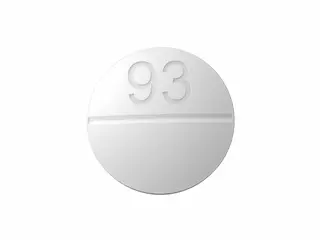Gastrointestinal Health
Discover effective supplements and remedies designed to support digestive comfort, promote gut health, and improve overall gastrointestinal function. Shop now for trusted products to maintain a healthy digestive system.
Gastrointestinal health is essential for overall well-being. Problems like acid reflux, indigestion, diarrhea, and irritable bowel syndrome can affect daily life. Several medications help manage these conditions effectively. In this review, we will discuss popular medicines included in the gastrointestinal health category.
Aciphex is a proton pump inhibitor (PPI). It reduces stomach acid production. Aciphex is often used to treat gastroesophageal reflux disease (GERD) and ulcers. Patients notice relief from heartburn and acid-related discomfort. It is generally well-tolerated but may take a few days to show full effects.
Asacol contains mesalamine. It is used to treat inflammatory bowel disease (IBD), especially ulcerative colitis. The medication acts locally in the colon to reduce inflammation. Patients taking Asacol often see a decrease in bowel urgency and bleeding. Regular use is important for maintaining remission.
Colospa is an antispasmodic drug. It helps relieve spasms in the intestines. This medication is widely used for irritable bowel syndrome (IBS) and other motility disorders. Many patients report reduced abdominal cramps and discomfort. Colospa does not affect bowel habits but focuses on muscle relaxation.
Imodium works as an anti-diarrheal. It slows down intestinal movement, allowing more water absorption from stools. Imodium offers quick relief during episodes of acute diarrhea. It should be used cautiously during infections, as slowing bowel movements might worsen symptoms. Overall, it is a reliable choice for controlling diarrhea.
Maxolon (metoclopramide) is used as a prokinetic agent. It speeds up stomach emptying and improves motility along the digestive tract. Maxolon is often prescribed for nausea, vomiting, and gastroparesis. It can help with symptoms related to delayed digestion. Side effects may include drowsiness or restlessness in some users.
Motilium also refers to domperidone. Like Maxolon, it promotes gut motility. Motilium is commonly used to treat nausea, vomiting, and bloating. It is favored since it does not usually cross the blood-brain barrier, resulting in fewer central nervous system side effects. Users notice improved appetite and less discomfort after meals.
Nexium is another PPI. It effectively controls acid reflux and stomach ulcers. Patients often switch to Nexium when other acid blockers do not provide sufficient relief. It works by blocking the proton pumps that produce stomach acid. Long-term use requires medical supervision due to possible side effects like vitamin deficiencies.
Pentasa contains mesalamine as well. It focuses on the treatment of ulcerative colitis and Crohn’s disease. Pentasa releases its active ingredient throughout the intestine, providing widespread anti-inflammatory effects. Many patients tolerate it well and find it supportive in maintaining disease remission.
Pepcid is part of the H2 blocker group. It reduces stomach acid but works differently from PPIs. Pepcid is faster acting but less potent. It is useful for occasional heartburn or mild acid reflux. The medication may also prevent heartburn caused by certain medications or foods.
Prevacid is another proton pump inhibitor. It is commonly used along with antibiotics to treat Helicobacter pylori infection. Prevacid reduces stomach acid, allowing ulcers to heal faster. It also manages GERD symptoms effectively. Patients often prefer Prevacid for its ease of use and proven track record.
Prilosec is a widely known PPI. It helps reduce acid production and heal acid-related damage in the esophagus and stomach. Prilosec is often recommended for frequent heartburn sufferers. It usually takes a few days to reach full effectiveness, so patients are advised to continue treatment even if symptoms improve quickly.
Protonix helps treat gastric acid conditions. It provides effective relief from GERD, erosive esophagitis, and Zollinger-Ellison syndrome. Protonix works by blocking acid secretion in stomach cells. Patients appreciate its lasting effect, often experiencing symptom relief that lasts throughout the day.
Reglan is a brand of metoclopramide, sharing the same properties as Maxolon. It improves gut motility and reduces nausea. Reglan is useful in gastroparesis and other digestive delays. Users should be aware of potential side effects like fatigue or muscle restlessness when starting treatment.
Xifaxan is an antibiotic that works in the gut. It treats traveler's diarrhea and certain infections related to irritable bowel syndrome with diarrhea (IBS-D). Xifaxan remains largely confined to the intestines, minimizing systemic effects. Many patients report an improved quality of life after treatment.
Overall, gastrointestinal medications today offer targeted relief for many common digestive issues. The choice depends on specific symptoms, underlying conditions, and individual responses. Proton pump inhibitors like Nexium, Prilosec, and Protonix dominate acid reflux treatment. Drugs like Asacol and Pentasa provide relief in inflammatory bowel diseases. For motility and nausea, Maxolon, Motilium, and Reglan are preferred. Imodium helps in acute diarrhea, while Xifaxan targets infections.
Patients should always consult a healthcare provider before starting any medication. Proper diagnosis ensures choosing the right treatment and avoiding misuse. Many of these drugs require consistent use over time for full effectiveness. Monitoring potential side effects is important, especially when using PPIs long-term or antibiotics like Xifaxan. Choosing the right gastrointestinal medication can greatly improve comfort and quality of life.
















